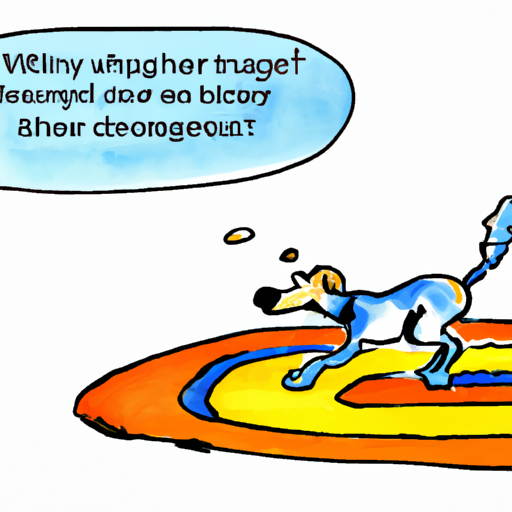As a caregiver, you’re always looking out for the well-being of those in your charge. If your care extends to a canine companion, you might have noticed a peculiar behavior – your dog scooting or rubbing their butt on the carpet. While it might seem amusing or even embarrassing, it’s crucial to understand that this behavior could be indicative of a health concern.
1. Understanding Dog Behavior
It’s essential to understand that dogs communicate their needs differently than humans. When dogs are uncomfortable, they’ll often express it through physical actions since they can’t articulate their discomfort. Scooting or dragging their butts on the floor is one such behavior.
- Anal Glands: Dogs have two small glands located near their anus, which are usually emptied when they poop. If these glands become blocked, they can cause discomfort, leading your dog to scoot on the floor.
- Parasites: Parasites like worms can cause itchiness in the anal area, prompting your dog to drag their butt on the floor.
- Allergies or Infections: Both allergies and infections can lead to itching and discomfort around the anus, leading to scooting behavior.
2. What to Do if Your Dog is Scooting
If you observe this behavior, it’s important to take action:
- Inspect their rear: Look for signs of swelling, redness, or discharge.
- Check for parasites: Look out for small, rice-like segments around their anus or in their poop.
- Consult a vet: If you notice any of the above signs, or if the scooting continues, consult your vet.
3. Preventive Measures
Prevention is always better than cure. Here are some steps you can take:
- Regular deworming can prevent parasitic infections.
- Regular grooming and cleaning can prevent anal gland blockages.
- A proper diet can promote regular bowel movements, reducing the chances of anal gland issues.
4. The Role of Diets
The diet plays a crucial role in a dog’s health. A balanced diet contributes to regular bowel movements, which can prevent anal gland issues.
| Diet Type | Benefits | Possible Drawbacks |
|---|---|---|
| High-fiber diet | Promotes regular bowel movements, helps empty anal glands | Some dogs may be allergic to certain types of fiber |
| Grain-free diet | Can reduce allergies | Might not be suitable for all dogs, consult vet before switching |
5. FAQs
Q: Can I empty my dog’s anal glands at home?
A: While it’s possible, it’s not recommended. Incorrect handling can lead to infections or injuries.
Q: Is scooting always a sign of a health issue?
A: Not always, but frequent scooting should not be ignored.
Q: Are certain breeds more prone to anal gland issues?
A: Yes, smaller breeds like Chihuahuas and Beagles are more prone to such issues.
Remember, your dog relies on you for their well-being. Understanding their behavior and responding promptly can ensure they live a happy, healthy life.



